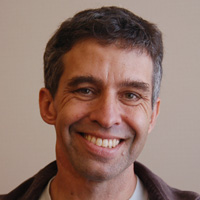Riga. Gniezno. Across the Oder. Berlin. The long walk led through the horrors of the Oranienburg concentration camp.
My mother and her twin brother were 14 in 1944. It was the coldest winter that modern Europe had ever known. And those two children were part of a tide of refugees, all fleeing the advance of the Red Army.
My uncle later described the burning cities, roads littered with corpses, the wagons and millions of refugees, nearly half of whom were children, choking the roads leading westward.
My mother and he came of age in a German DP camp. Damn refugees they were called. With nowhere to go, they placed their hope in Truman's Displaced Persons Act that would allow them entrance to the U.S. But the act was fiercely resisted: some of the refugees were Jews or Catholic, others Communists. Conservatives feared problems of sanitation and safety brought by "undesirables." Unions feared the loss of jobs.
"These victims of war and oppression look hopefully to the democratic countries," Truman exhorted Congress. "We must not destroy their hope."
